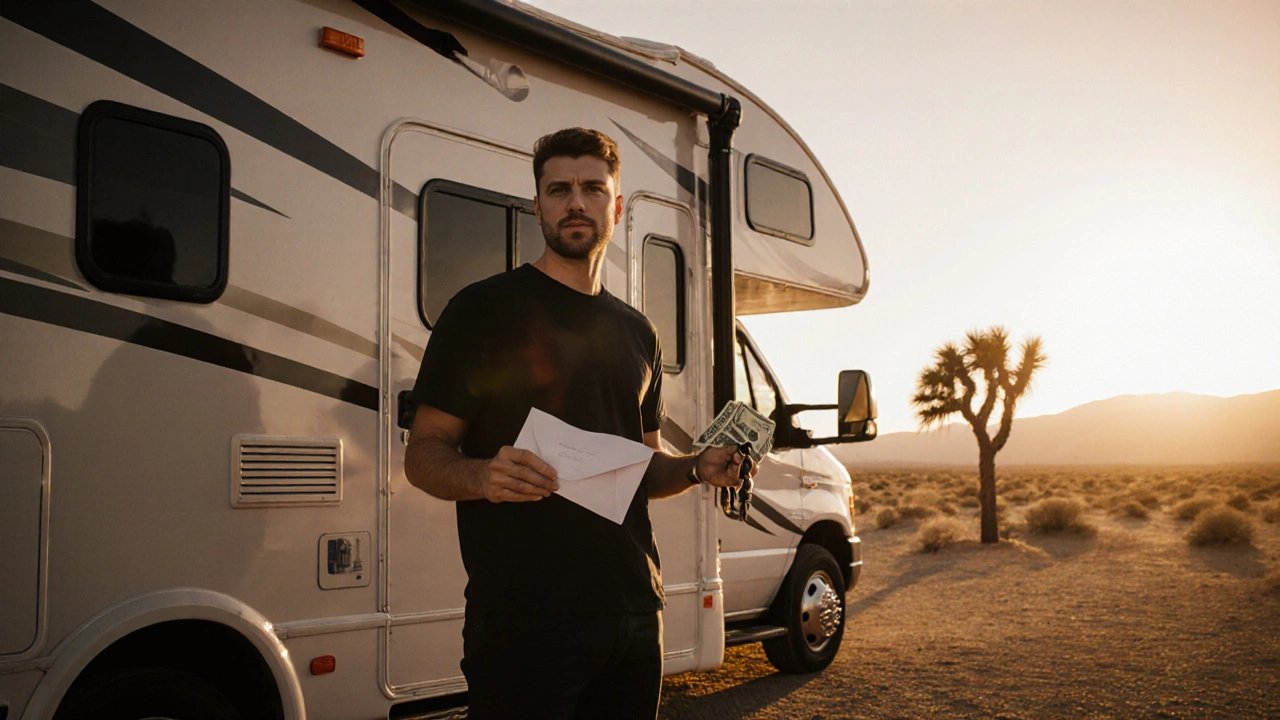RV Purchase: What You Need to Know Before Buying a Motorhome
When you're considering an RV purchase, a motorhome or camper van bought for travel or full-time living. Also known as motorhome ownership, it's not just about picking a shiny vehicle—it's about understanding the long-term costs, how it holds value, and whether it fits your real life.
An RV purchase, a motorhome or camper van bought for travel or full-time living. Also known as motorhome ownership, it's not just about picking a shiny vehicle—it's about understanding the long-term costs, how it holds value, and whether it fits your real life. Most people think buying an RV is like buying a car, but it’s closer to buying a house that moves. You’ve got insurance, maintenance, storage, fuel, and sometimes even site fees if you park it long-term. And unlike a car, an RV loses value fast—especially if it’s not maintained well. That’s why looking at motorhome resale value, how much a motorhome retains its worth after years of use matters more than the sticker price. Some models hold 60% of their value after five years; others drop to 30%. Brands like Winnebago and Mercedes-based campers often top the list, not because they’re the fanciest, but because they’re built to last and have strong demand in the used market.
Then there’s the RV living cost, the total monthly and annual expenses of owning and running a motorhome for daily life. It’s not just the loan payment. Think about propane for heating and cooking, battery replacements, tire changes, winterizing, and the cost of hookups at campsites. If you’re thinking of living in it full-time, you also need to factor in laundry, internet, and storage for your stuff. People who live in RVs full-time often spend less than renting an apartment—but only if they plan carefully. Many end up surprised by hidden fees like campground dues, sewer dump charges, or unexpected repairs. A used motorhome might look like a bargain, but if it needs a new roof or water pump, that deal can turn expensive fast.
And don’t forget camper van ownership, the lifestyle and responsibilities that come with owning a smaller, more mobile RV. If you’re not planning to travel across the country every weekend, maybe a smaller van makes more sense. They’re cheaper to buy, easier to drive, and cheaper to park. But they also have less space, less storage, and fewer amenities. Some people start with a rental to test the waters before spending tens of thousands. Others jump in headfirst and regret it. The key is knowing what you’ll actually use. Do you need a full kitchen? A shower? A dedicated bed? Or are you happy with a fold-out couch and a portable toilet?
What you’ll find below isn’t a sales pitch. It’s a collection of real stories, cost breakdowns, and practical advice from people who’ve been there. Whether you’re looking at a brand-new motorhome or a 10-year-old used model, these posts cover what nobody tells you before you sign the papers. From how to avoid bad deals to which models actually keep their value, you’ll get the kind of info that saves you money—and headaches—down the road.
Is it better to finance or pay cash for an RV?
Should you pay cash or finance an RV? Learn the real costs, hidden risks, and smart strategies to make the best financial choice for your lifestyle and budget.
